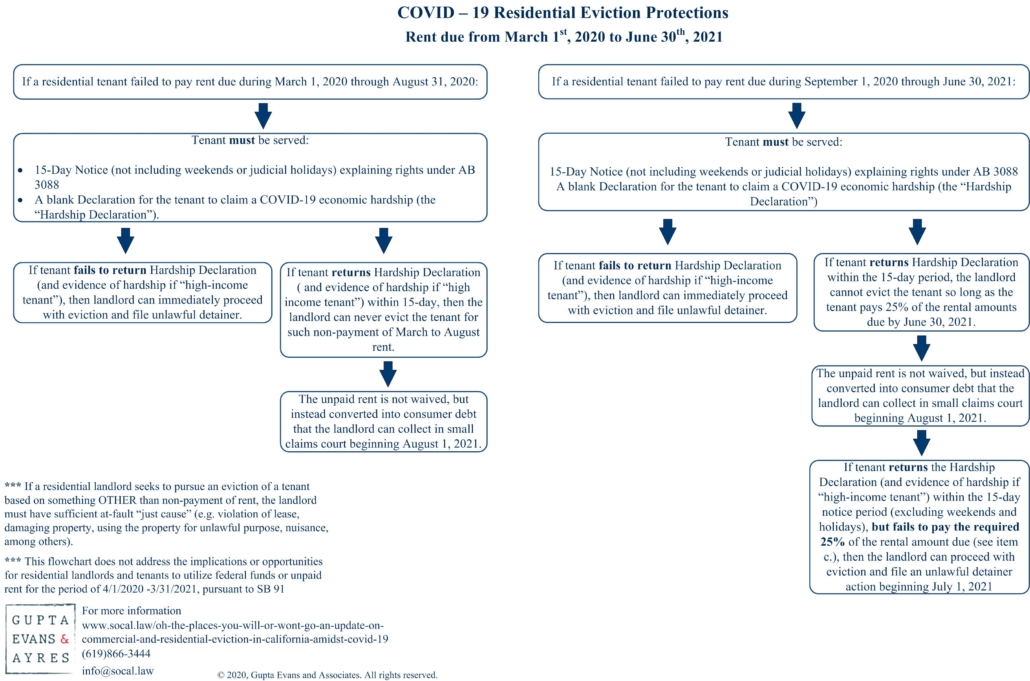When is a Broker Entitled to his Commission Fee – An Examination of the ‘Procuring Cause’ Requirement in California
Most, if not all, California real estate brokers (and agents) earn a living by helping people buy and sell homes. Brokers are often paid on a commission basis, usually 2%-3% of the sales price, and do not enjoy the luxury of a steady, bi-weekly paycheck. Given the “feast or famine” nature of the industry, brokers often find themselves in a commission fee dispute with another broker or their client.
In California, a real estate broker earns his commission fee when he produces a “ready, willing, and able” buyer to purchase the property. The broker must also be the “procuring cause” in effectuating the sale. Most brokers, agents, and lawyers are familiar with the former requirement—we have all heard that phrase before. However, the “procuring cause” element is often overlooked and misunderstood amongst real estate professionals. Although the California Association of Realtors (“C.A.R.”) has released helpful guidelines and even included these requirements in its model rules, confusion remains as to what “procuring cause” means. This blog article fills that void by exploring California’s case law on the ‘procuring cause’ requirement.
Ready, Willing, and Able – A Brief Summary
Under California law, a broker has satisfied the ready, willing, and able requirement when he has produced a buyer willing to purchase the property for the price and terms specified by the seller. (See Steve Schmidt & Co. v. Berry (1986) 183 Cal.App.3d 1299, 1305-06.) The buyer doesn’t need to make an offer to purchase the home, but an offer does indicate that the buyer is ready and willing to buy the home. (See Martin v. Culver Enterprises, Inc. (1966) 239 Cal.App.2d 925, 929.) In addition, the prospective purchaser must have the financial capability to purchase the property, such as the necessary capital, or is pre-approved for a home loan. (See Steve Schmidt, 183 Cal.App.3d at 1305-1306.).
In Steve Schmidt, the broker satisfied the ready, willing, and able requirement because the buyer possessed sufficient funds to purchase the property or, at a minimum, could obtain a loan to finance the transaction. In comparison, in Park v. First American Title Co. (2011) 201 Cal.App.4th 1418, 1426, the buyer was unable to purchase the property, which meant that the broker was not entitled to his commission fee. The buyer did not produce any evidence that indicated he had the financial capability to close the transaction, such as pay stubs and bank statements, nor had he been pre-approved for a home loan. The main takeaway is that a broker satisfies this first requirement if the buyer is serious about purchasing the property and has the financial wherewithal to do so.
Procuring Cause Requirement
The National Association of Realtors (“N.A.R.”) defines procuring cause as the “uninterrupted series of casual events, which results in the successful transaction.” C.A.R. has adopted N.A.R.’s definition and baked the procuring cause requirement into its Multiple Listing Services Rules (“M.L.S. Rules”). M.L.S. Rule 7.13 states that a buyer’s-broker’s offer is accepted by the selling broker “by procuring a buyer which ultimately results in the creation of a sales or lease contract.” The N.A.R.’s and M.L.S.’s respective definitions of procuring cause derive from the century-old landmark case of Sessions v. Pacific Improvement Co. (1922) 57 Cal.App. 1.
In Sessions, the plaintiff-broker was employed by the defendant-seller for the sole purpose of selling a shipping yard located near the San Francisco Bay. The plaintiff-broker completed all of the due diligence associated with the sale, such as obtaining the necessary maps and surveys and obtaining a permit to dredge the shipping yard, among other things. After the plaintiff-broker left his employ with the defendant-seller, he provided tract maps to the parties and even helped resolve a drainage issue on the shipping yard. The defendant-seller ultimately closed the transaction at the $1 million purchase price plaintiff-broker had previously proposed; however, the plaintiff-broker was not paid his commission fee.
In reviewing these facts, the California Supreme Court issued the ironclad rule that California Courts rely on to this day: a broker is entitled to his commission fee when he “set[s] in motion a chain of events, which, without a break in their continuity, cause the buyer and seller to come to terms as the proximate result of his peculiar activities.” (Sessions, 57 Cal.App. at 20.) The Supreme Court found that the plaintiff broker was an integral part of the sale because he had “performed the most effective and. . . .hardest and most expensive part of the whole undertaking.” (Id. at 32.) The Court concluded that the plaintiff-broker was entitled to his commission fee for his efforts in helping effectuate the sale of the shipping yard. (Id.)
Although Sessions was decided during the roaring twenties, California Courts have continuously relied on the case. For example, in Duffy v. Campbell (1967) 250 Cal.App.2d 662, the plaintiff-broker was the seller’s agent. The plaintiff-broker introduced the buyer to the seller, negotiated the sales price and contract terms, and even opened an escrow account for the parties. During the escrow period, the buyer and seller held a meeting at the exclusion of the plaintiff-broker and reduced the sale’s price by the amount of the broker’s commission fee. In addition, the parties conveniently closed the sale of the home after the last day the broker could claim a commission fee under the listing agreement.
The Court held that the plaintiff-broker was the procuring cause in effectuating the sale. (See generally Duffy, 250 Cal.App.2d at 665-57.) Akin to Sessions, the plaintiff-broker did all of the heavy lifting. He introduced the parties, negotiated the sales price, and even opened an escrow account for the parties. (Id.) The fact that the parties amended the agreement, principally to exclude the plaintiff-broker from the transaction, did not preclude the plaintiff-broker from collecting his commission fee. (Id. at 668.)
Although Sessions and Duffy may provide a sigh of relief to a broker currently involved in a commission fee dispute, it is important to examine cases in which the Court found that the complaining broker was not the procuring cause.
In Westside Estate Agency, Inc. v. Randall (2016) 6 Cal.App.5th 317, the plaintiff-broker made a $42 million offer for a Bel Air home on behalf of his clients. The offer was rejected, but the plaintiff-broker continued to negotiate and exchange offers with the seller’s broker. After the seller conditionally accepted the plaintiff-broker’s offer, the buyer contacted his attorney for additional advice and told the plaintiff-broker to cancel the deal. The plaintiff-broker did not submit any more offers for the buyer. Three months later, the buyer purchased the property for $1.25 million more than the plaintiff-broker’s original offer and used their attorney as the acting broker. The plaintiff-broker sued, claiming that he was entitled to a commission fee based on the new purchase price.
The Court disagreed and held that the plaintiff-broker “merely put the prospective buyer on track to purchase the property,” which did not entitle him to his commission fee. (Westside Estate Agency, Inc., 6 Cal.App.5th at 331.) The Court found that the plaintiff-broker’s efforts, albeit helpful, were too attenuated from the closing date to award him a commission fee because the transaction closed approximately three months after the buyer told the plaintiff-broker to cancel the deal. Moreover, the buyer purchased the home on different terms than those initially negotiated by the plaintiff-broker. (Id.)
In Schiro v. Parker (1955) 137 Cal.App.2d 503, the Court reached a similar conclusion as Westside Estate Agency, Inc. In Schiro, the property’s listed sale price was $366,000. The plaintiff-broker represented the buyer and submitted two offers at $320,000 and $325,000, both of which the seller rejected. The Plaintiff-broker later learned that the seller was inclined to sell the property for $330,000 or $335,000. The Plaintiff-broker communicated this information to the buyer, but the buyer chose not to submit another offer to the seller. A few weeks later, the buyer met with a separate broker, or the closing-broker, and told him that he thought the “deal was off.” Acting at the buyer’s direction, the closing-broker made two offers to the seller, and the seller accepted the closing-broker’s second offer for $330,000.
Based on these facts, the Court held that the plaintiff-broker was not entitled to his commission fee. The Court focused on the buyer’s state of mind in reaching its decision. The Court was persuaded by the fact that the buyer thought the “deal was off,” and he was, therefore, “free to believe that [plaintiff-broker] was unable to procure an acceptable offer from the seller.” (Schiro 137 Cal.App.2d. at 507-08.)
The holdings in Westside Estate Agency and Schiro teach us the Courts will examine multiple factors when determining whether the complaining broker was the procuring cause in effectuating the sale. In Westside Estate Agency, Inc., the Court focused on the fact that the plaintiff-broker’s efforts were too attenuated from the closing date to be considered the procuring cause. On the other hand, in Schiro, the Court’s relied on the buyer’s beliefs and state of mind concerning the transaction and his relationship with the plaintiff-broker.
There are noticeable factual differences in the case in which the broker was the procuring cause (i.e., Sessions and Duffy) and the cases in which the Court found the broker was not (i.e., Westside Estate Agency, Inc., and Schiro). In Sessions and Duffy, the plaintiff-brokers completed all of the major tasks related to the sale, and their efforts were closely related to the transactions in time and purpose. In comparison, in Westside Estate Agency, Inc. and Schiro, the brokers’ actions were too attenuated from the transaction (i.e., Westside Estate Agency, Inc.) and were not a significant factor or cause of the buyer and seller completing the sale.
The C.A.R. has adopted the case holdings described above and created four categories of factors to guide brokers, arbitrators, and courts in determining whether a broker was the procuring cause in the transaction. The four categories are outlined below:
- Connection to the Transaction: These factors focus on who showed the property to the client, made offers on the client’s behalf, the amount of time that elapsed between the intro broker’s efforts and the sale of the property, and the services each competing broker provided. These factors were discussed in Westside Estate Agency, Inc., Sessions, and Duffy.
- Buyer’s Choice: This set pertains to the client’s choice between brokers and his/her state of mind as to who was representing them. This factor was central to the holding in Schiro.
- Broker’s Conduct: This category relates to the steps the competing brokers took to secure their commission fee and relationship with their clients. In other words, did the closing broker ask the seller if he/she had engaged with another broker? Did the intro-broker know that his/her client was attending open houses on their own? And did the intro-broker tell his client to inform other brokers that he/she was already represented?
- Other – Catch-All: This set solely relates to whether any contractual agreements existed between the broker and the client, such as a Buyer-Representation Agreement.
It is important that California real estate brokers and agents keep these factors, as well as the cases discussed above, in mind when negotiating a sales contract on behalf of their client(s). Any ambiguity on who is entitled to a commission fee may negatively impact a broker’s livelihood and result in an arduous and time-consuming litigation process. Contact a California real estate attorney if you or another agent are involved in a commission-fee dispute.
The materials available at this website are for informational purposes only and not for the purpose of providing legal advice. You should contact your attorney to obtain advice with respect to any particular issue or problem. Use of and access to this web site or any of the e-mail links contained within the site do not create an attorney-client relationship. The opinions expressed at or through this site are the opinions of the individual author and may not reflect the opinions of the firm or any individual attorney.










